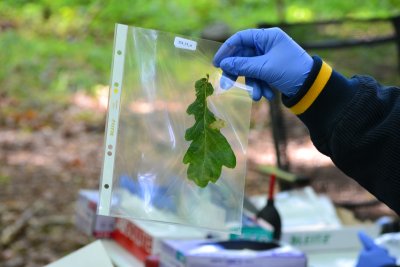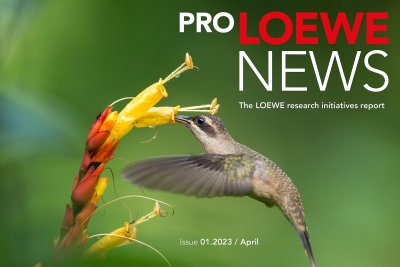Research-Initiatives
Tree-M Mechanisms of resilience and environmental impact of the leaf microbiome of trees

Forests play an essential role in global climate. They host an immense variety of microorganisms, exhibiting enormous biochemical and physiological diversity, which in turn can affect health and resilience of trees. The research cluster Tree-M – mechanisms of resilience and environmental impact of the leaf microbiome of trees – focuses on these microorganisms and their complex interactions with the biotic and abiotic environment of their leaf habitat (the phyllosphere).
With an interdisciplinary research cluster joining forces from the fields of microbiology, biochemistry, ecology, geography, and bioinformatics, research activities will for the first time investigate these microorganisms and their interaction networks on various scales. These cover individual bacterial cells (molecular mechanisms of bacterial enzymes as well as metabolic activities and their regulation) to microbial communities (interactions within the leaf microbiome and with the abiotic environment) and cross-kingdom organismic interaction networks (microbiota-leaf-herbivore interactions).
This knowledge can help in the development of sustainable strategies that reduce the impact of global change on this interaction network and can thus help sustain forest health and functions into the future.
Partners
- Philipps-University Marburg
- Justus-Liebig-University Giessen
- Max Planck Institute for Terrestrial Microbiology, Marburg
Associated Partners:
- Centre for Environmental Research Leipzig
- University of Freiburg
- Microcosm Earth Center
Fields of study
- Biology
- Chemistry
- Geography
Funding period
since 2023Project Coordinator
- Professor Dr. Anke Becker, Philipps-University Marburg
- Professor Dr. Nina Farwig, Philipps-University Marburg
- Professor Dr. Tobias Erb, Max Planck Institute for Terrestrial Microbiology, Marburg
Locations
- Gießen
- Marburg




